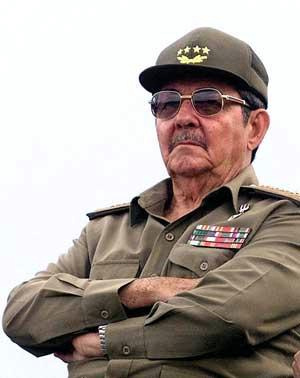More Cuban doctors en route to Angola after Castro's second visit
 Johannesburg - Cuban President Raul Castro wound up his second visit to the oil-rich southern African nation of Angola in under six months on Wednesday.
Johannesburg - Cuban President Raul Castro wound up his second visit to the oil-rich southern African nation of Angola in under six months on Wednesday.
Castro spent two days in the former Portuguese colony and staunch Cuba ally, during which he held talks with the country's president of 30 years, Jose Eduardo dos Santos, and Cuba agreed to send 230 more doctors to Angola.
Delegations from two countries also signed agreements on cooperation in research and telecommunications.
Angola, like many African countries, is suffering an acute shortage of doctors as many African medics leave the continent in search of better pay and opportunities in Europe and North America.
The World Health Organization recommends a ratio of one doctor per 1,000 inhabitants; Angola currently has one for every 10,000 people, Health Minister Jose Van-Dunem said Tuesday.
For decades, Cuba has been lending doctors to its African allies.
Some 200 Cuban doctors are already working in Angola.
The health minister also announced that Cuba and Angola would work together on the development of a vaccine for cholera, a water-borne diarrhoeal disease that is endemic in Angola.
After attending a meeting of leaders of the Non-Aligned Movement (NAM) in Egypt on July 15 and 16, Castro, 78, paid a visit to the south-west desert state of Namibia before continuing onto Angola, which he visited already in February.
Cuba and Angola have close ties dating back to Angola's 27-year civil war, which broke out after independence from Portugal in 1975.
Fidel Castro, whom Raul replaced as president last year because of his elder brother's declining health, sent tens of thousands of Cuban soldiers to assist the ruling Marxist MPLA fight off two US-backed rebel movements at the height of the Cold War.
The civil war ended with nearly half a million dead in 2002.
Over the years Cuba has sent tens of thousands of doctors, nurses, teachers and engineers to Angola.
In Namibia, another African country whose independence struggle Cuba supported, Castro held talks with President Hifikepunye Pohamba and first post-independence president Sam Nujoma.(dpa)